Achickwitbeatz presents the Instrumental Intel podcast, bringing you information instrumental to your artistic career including music industry news & tips, insights & interviews, and beats for your inspiration. Listen on Saturdays at 7 pm EST on Grander Radio and Achickwitbeatz.com.
Follow on Facebook, Instagram, Twitter, YouTube Audiomack & SoundCloud, and subscribe on your favorite podcast platform. Download the Grander Media app to listen to Grander Radio on the go.
*Podcast platforms have the amended version due to Spotify claiming that the full version had too much music for a music podcast. To listen to the full version, use any of the methods/platforms above.
- Art
- Independent Labels
- Internet Radio
- Music Documentaries
- Album Reviews
- Music History
- Music Industry News
- Free Game Friday
- Free Downloads
- Poetry
- Books
- Interviews
- Did You See It?!
- Hip Hop History
- Hear Here
- Music News
- Hip Hop Documentaries
- Music Marvels Radio Show
- Think Piece Thursday
- Mini Documentaries
- Instrumental Intel
- Music Humor
- Indie Analysis
- Conversations & Quotables
- Music
- Resources for Artists
- Podcasts
- Beats/Instrumentals
- Music Education
Transcript Generated by Riverside
00:01
Hey, thank you for tuning in to Instrumental Intel. I'm your host, music producer, Achickwitbeatz. And I'm glad that you're here with me today, doing something a little bit different since the start of the new year. We're gonna take a look at some of the stories from 2024 that are shaping some of the music industry predictions for 2025. And of course, there's gonna be instrumentals by me for your inspiration. So before I go ahead and drop that first beat, I gotta give a shout out to my home station, Grander Radio out of Grand Rapids, Michigan. And with that,
00:30
Let's go!
[BEAT BREAK]
17:35
We've got the big story that's been kind of going around. There's been a lot of things that have been going on with Spotify. So we're gonna kind of take a look at these first before we get to the prediction. But Spotify executives and board members have cashed out more than 1 billion dollars in stock this year. After laying off 1,500 employees in December 2023, the company's stock has surged over 550% in two years.
18:01
closing above $500 per share for the first time on December 4th of 2024. This comes after raising the streaming threshold to 1,000 plays per 12-month period to receive payment. Spotify's market cap is now over $90 billion, which is more than double Universal Music Group's valuation. The CEO, Daniel Ek, sold 950,000 shares last year, making $320 million.
18:27
Co-founder Martin Lorentzon sold $556.77 million in shares. While independent artists face royalties being cut and redistributed to more popular artists, the CEO's net worth is now $7.2 billion surpassing the combined wealth of the top four richest active musicians, Jay Z, Taylor Swift, Rihanna, and Bruce Springsteen, whose total wealth combined is $6.8 billion.
18:54
Spotify is on track for its first ever profitable year with a projected $1.5 billion in operating profit for 2024 and its premium subscriber base now exceeds $252 million, up 12% from the same time last year. Spotify also effectively cut music royalties by 46 million euros for a single quarter through its slick bundling move that automatically combined audiobooks with music.
19:19
resulting in a lawsuit from the mechanical licensing collective that Spotify is vehemently fighting much like it has with every legal opportunity to pay artists fairly. While Spotify execs rake in millions, many independent artists are left with nothing. So you have to ask who's this system actually working for? Music critic and historian Ted Goia points out, there's more money in disrupting music than in making it. Which brings us to the prediction. Be on the lookout for more disruption.
19:46
I mean, if you think about it, it's much easier to make profit when you're selling something that you're not actually paying for. Spotify has long been accused of purposely using AI music to decrease its payout to artists, and more recent reports continue to raise suspicions. Not to mention the massive automatic removal of independent artist music who were accused of using bodied playlists with no proof the artists actually had any control over it, eliminating their chances of reaching the minimum stream threshold to receive payouts for those tracks.
20:13
So, Spotify is scheduled to announce its fourth quarter 2024 financial results on Tuesday, February 4th, right before the market opens. Questions for the 8am Eastern Q&A session can be submitted on the day of the call at slido.com with the event code #SpotifyEarningsQ424. Alright, I'm gonna take another beat break and then I'll be back with another prediction and more stories.
[BEAT BREAK]
29:56
Hey, I'm Achickwitbeatz, multi-genre music producer and strategist to indie artists and labels. Visit achickwitbeatz.com for resources for artists and instrumentals in various genres available for songs, blogs, blogs, podcasts, themes, TV, film, commercials, and more. Once again, that's achickwitbeatz.com. That's A-C-H-I-C-K-W-I-T-B-E-A-T-Z.com Let's make something happen.
30:26
Alright, I am back as promised. The prediction: Music creators could begin to lose significant income due to generative AI. So the $65.9 billion AI market is anticipated to negatively impact revenues by enabling unauthorized use of creators' works and replacing human-made content with AI-generated alternatives. A report from CISAC warns that the decline may amount to a nearly 25% loss of income by 2028 if action isn't taken to protect AI.
30:55
creators' rights and human creativity. The report stresses the need for global regulations highlighting Australia and New Zealand as examples of promising policy development. For instance, AI-generated quote-unquote bands are increasingly sneaking music covers on the Spotify, blending in with real artist covers to attract millions of streams and royalties. These AI covers span genres from country classics to jazz and often have no digital footprint, raising concerns over their authenticity.
31:23
While Spotify does pay royalties for both original songs and covers, original songwriters often receive lower payments compared to the producers of these covers. As AI covers gain traction, the gap in earnings between songwriters and cover producers is becoming more pronounced. Notoriously, a North Carolina man is facing up to 60 years in prison for allegedly using AI to create hundreds of thousands of songs.
31:46
then using AI to stream his AI-generated music billions of times since 2017 to rack up over $10 million in fraudulent royalties. Multiple platforms, including YouTube, have developed tools to detect AI in instances like these. HarmonyCloak, developed by researchers at the University of Tennessee at Knoxville, is a tool to be released for free this year, designed to protect music from being copied by generative AI models.
32:11
by embedding low-pressure, nearly inaudible sounds into compositions to prevent AI from learning and mimicking songs. It complements efforts like Tennessee's ELVIS Act, which protects artists' voices and likenesses. There have been multiple initiatives launched to advocate for ethical AI use, and will likely be more. Alright, I'm gonna take another beat break and then I'll be back with another prediction after this.
32:33
Keep it locked!
[BEAT BREAK]
42:04
Alright and I'm back with another prediction, and it is the major labels will be coming for even more of the independent music market share. The global recorded music market offers growth opportunities that differ sharply from the US, where major labels dominate. According to media research, indie labels and artists hold 46.7% global market share compared to 35.7% in the US, meaning stronger competition and indie growth abroad.
42:32
Universal, Warner, and Sony have been actively making strategic acquisitions in high-growth emerging markets like China, India, Brazil, Mexico, and Nigeria to close the gap, just like they've been doing in the US. The major's common practice of buying independent labels and artist services only to eventually eclipse, dissolve, and absorb it was still in play throughout 2024. Warner Music Group had many structural changes including layoffs,
42:58
and consolidation of labels like Atlantic Records, the formerly independent Label 300, and Electra with Elliott Grange, who just happens to be the son of Universal Music Group CEO Lucian Grange, stepping in as CEO of Atlantic Music Group. Universal Music Group fully acquired the independent music powerhouse [PIAS], which will merge with Universal's Virgin Music Group, while [PIAS] Label Group will supposedly remain an autonomous division for now.
43:27
the independent division of Universal Music Group will acquire Downtown Music Holdings, the owner of independent music distributor CD Baby, pending regulatory approval late this year. The deal is facing backlash from the independent music sector. Critics argue the move threatens competition, reduces options for independent labels and artists, and consolidates too much market power under one entity. Trade groups are calling on regulators, particularly in Europe, to investigate and block the acquisition.
43:56
They also warned this deal, along with recent similar moves, could fundamentally shift the balance of power in the music market. There are more stories like this, but you get the picture by now. Alright, I'm gonna take another quick pause for the cause and then I'll be back with more information after this.
55:01
Alright and I am back. While this isn't necessarily a prediction, it's still a story that will definitely impact things that will happen this year.
55:09
So yeah, it's hard to predict the future of TikTok, but it's worth noting that if it's not banned, their decision to now pay music artists based on the number of views the song receives in videos, rather than how often it's used to create new videos, could significantly benefit independent artists. If the ban does go into effect, it's likely that YouTube Shorts would be the next best alternative for creators to flock to, since it's directly behind TikTok and ahead of Facebook and Instagram reels for short-form video platforms used by music listeners.
55:39
So it may be worth considering working with A YouTube Partner to make sure your music is available on the platform Alright, I'm going to take another beat break and then I'll be back after this.
[BEAT BREAK]
59:40
I hope that's a wrap for this episode of Instrumental Intel. Once again, I'd like to thank you for tuning in. I hope that you found this information helpful. Make sure that you join me next week. I'll be back for another episode on my home station, Grander Radio out of Grand Rapids, Michigan. So until next time, you know where to find me. Tune in, tell a friend and I'll see you then. Peace.
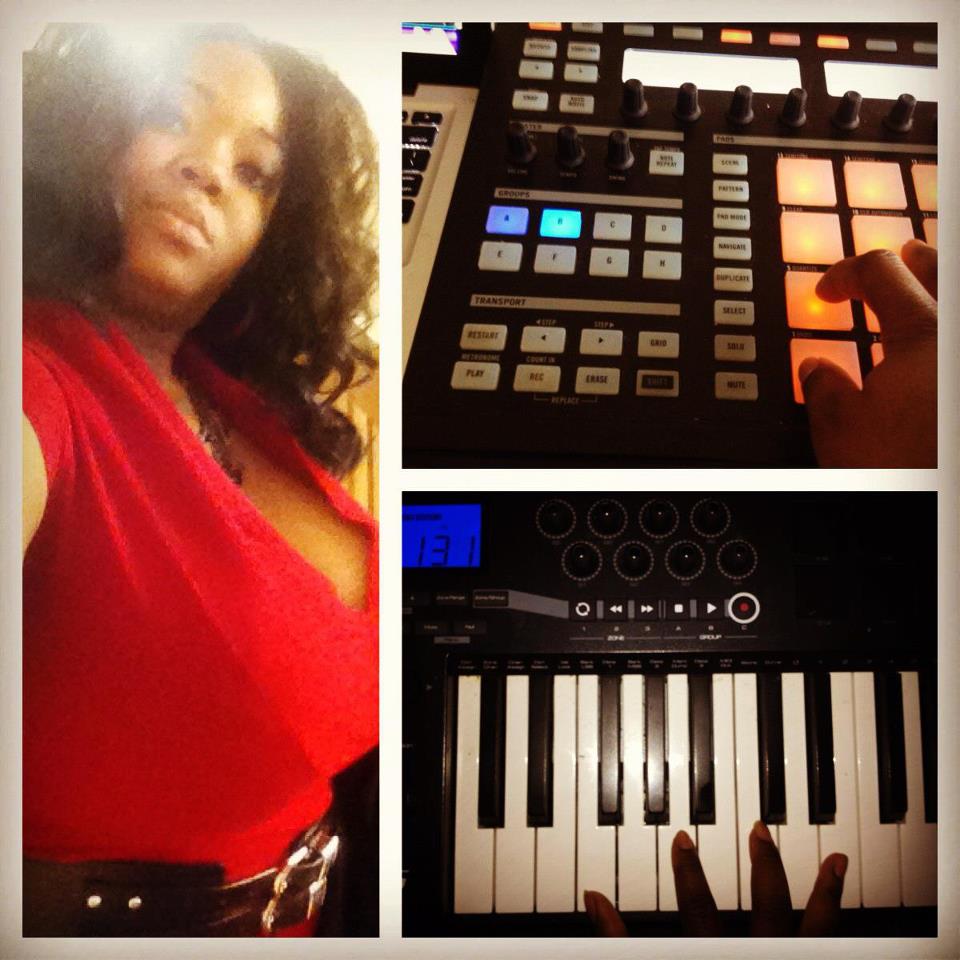







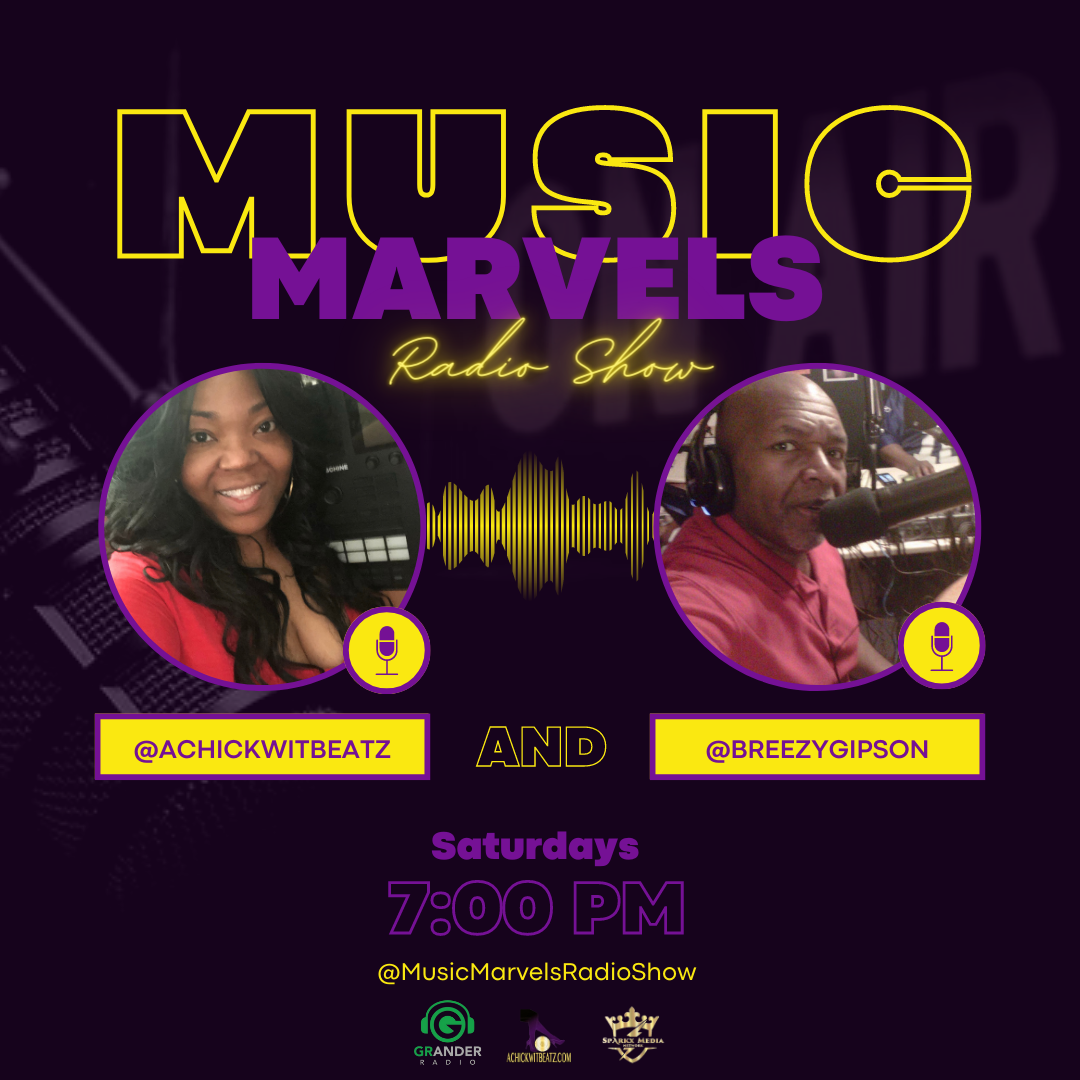
![Hear Here: Achickwitbeatz - Dopamine & Serotonin [Single]](https://images.squarespace-cdn.com/content/v1/52b0b90ae4b0293bfed0d692/1710852808557-EZYGFDIBHLBSIRFOVS1Q/Dopamine+%26+Serotonin.JPG)


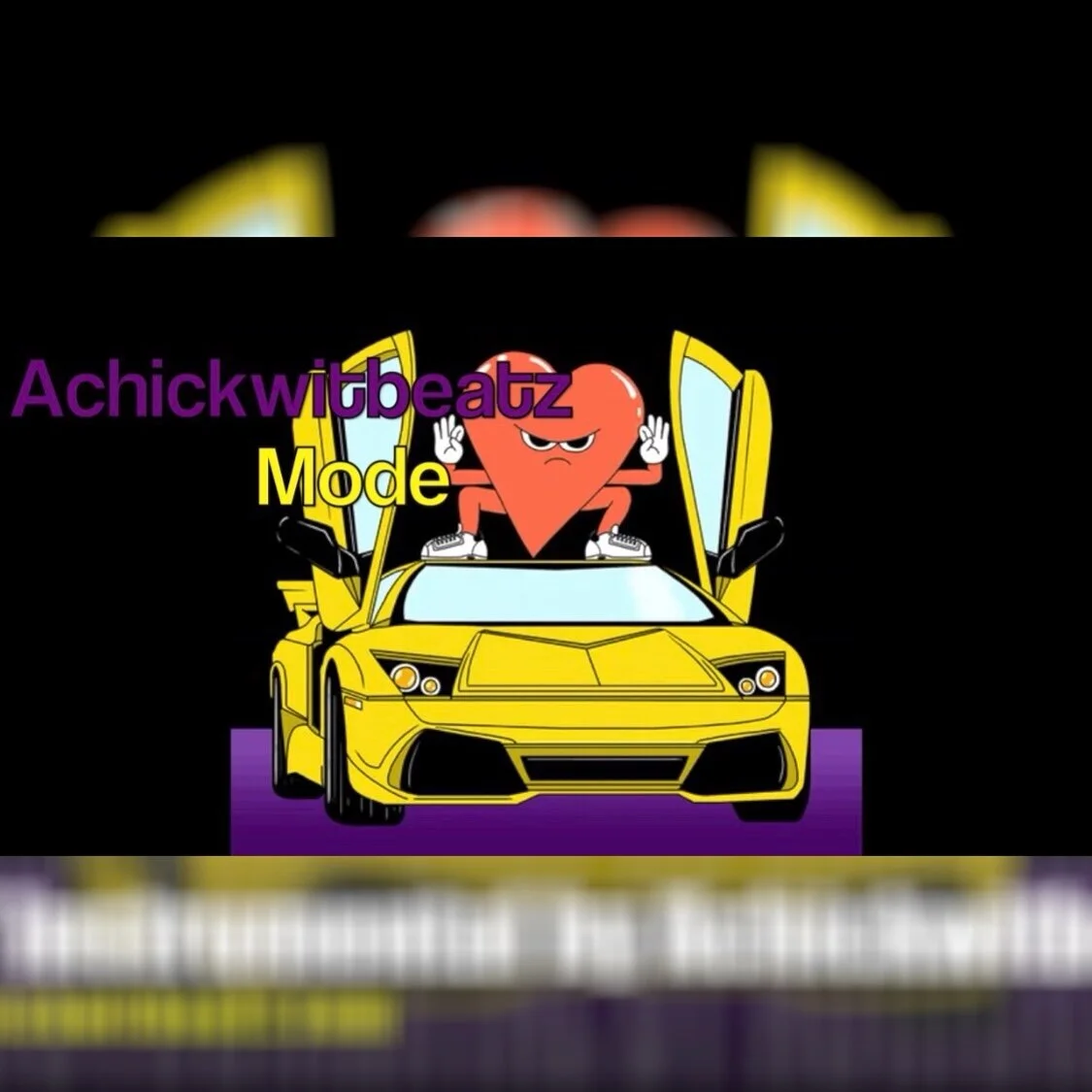
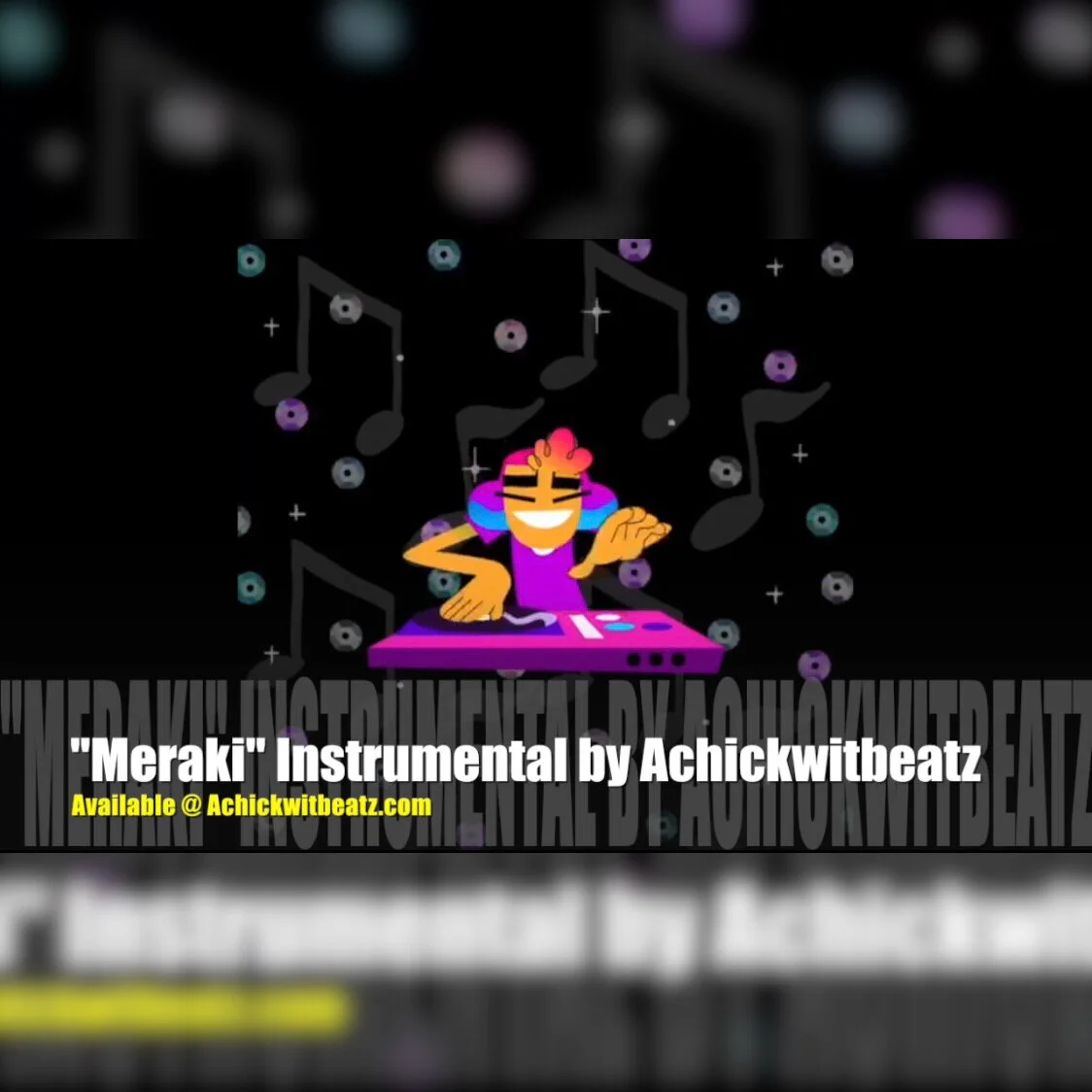





![Hear Here: Dagga Man- "Analytics" [Prod. by Achickwitbeatz]](https://images.squarespace-cdn.com/content/v1/52b0b90ae4b0293bfed0d692/1584638158548-9R55AZLWZIDFJC8LATV6/IMG_2212.JPG)







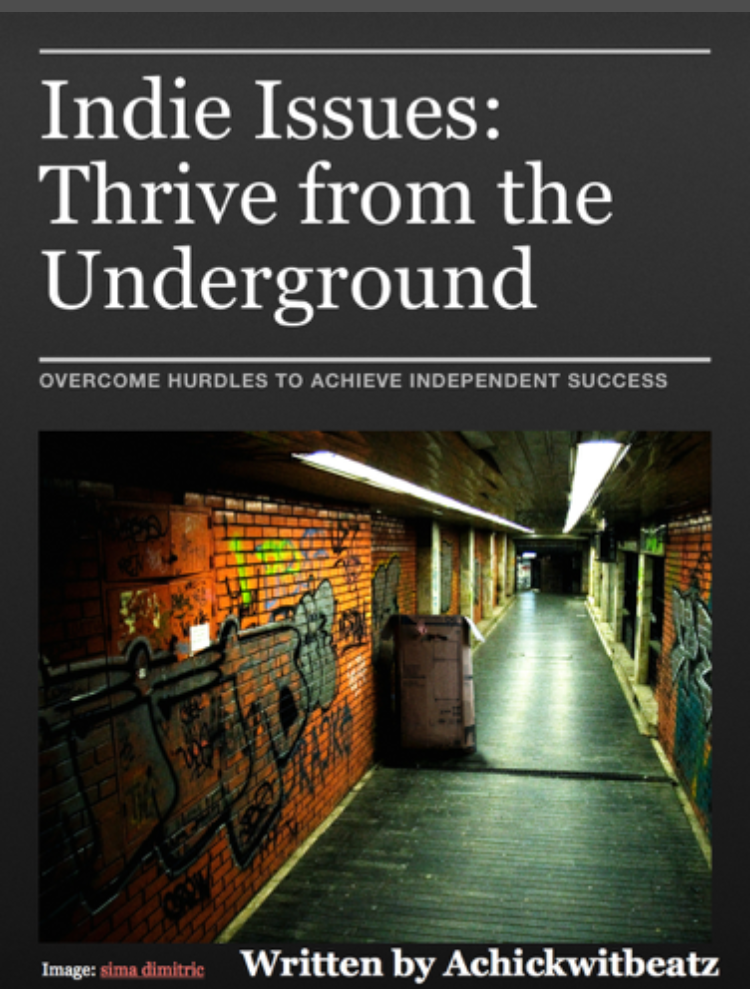
















![Making Music on a Budget [Infographic]](https://images.squarespace-cdn.com/content/v1/52b0b90ae4b0293bfed0d692/1582844361438-3JTE5NT3EL51FHXC0WJI/making-music-on_1929722%25281%2529.jpg)



